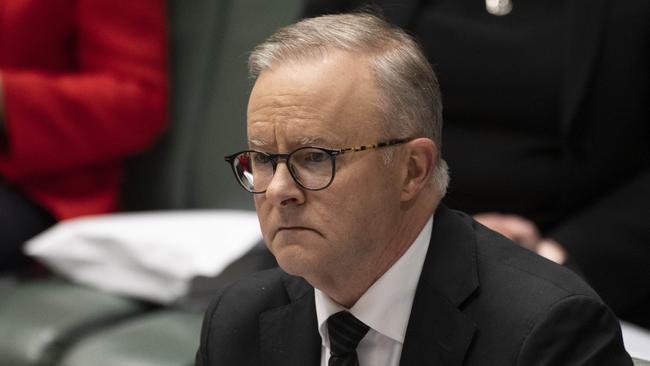
Anthony Albanese’s intervention to rescue the government’s industrial relations bill has exposed a potential dilemma for Labor’s broader and longer term political agenda.
Namely, the lack of a strategy for dealing with the Senate crossbench when things don’t go its way. This should not be rocket science for any new government.
Compared to the unwieldy and often maniacal antics in Senates of the recent past, Labor has the luxury of the most workable for an elected government in more than a decade.
But instead of making the most of it, it appears to have taken it for granted.
Assuming that the independent senator David Pocock would be a pushover was a mistake.
And if Labor can stumble on industrial relations, then what happens when even more difficult and contentious pieces of legislation is presented over the course of the next 2½ years? Which will happen.
This has prompted some to ask why the new Labor government hadn’t conjured up its own version of the former Coalition senator and finance minister Mathias Cormann – once dubbed the “crossbench whisperer”.
He managed to negotiate contentious legislation through the 45th parliament, which boasted the largest and most unmanageable group of crossbench independents in almost 70 years.
The Prime Minister’s meeting with Pocock to try to break the impasse on IR on Wednesday failed to elicit any commitment. Albanese walked away from the meeting empty-handed.
Pocock is proving to be as sensible as he is clearly methodical on the IR bill. He won’t be rushed, and he’s remaining steadfast that the bill be split.
This has come as a bit of a shock to the government, which from the start has assumed he was an assured “plus one” with the Greens for a majority.
It is also only the second time the Prime Minister has met with him since the election. So far the government appears to have opted for a model that relies solely on the portfolio minister running the negotiations with the crossbench on specific bills.
This fails to recognise that the agendas of the crossbench are broader than single-issue bills. It limits the ability to talk about other issues on the crossbench agenda, and on which the responsible minister doing the negotiating is naturally constrained.
But then, they should know all this.
So it begs another question: what did the government think was going to happen?
Pocock clearly won’t be rushed on a complex and contentious piece of legislation just to help Labor deliver on its KPIs.
The government may quickly come to realise the value in deputising a Cormannesque figure in its own ranks if it wants a smoother path to legislating its agenda.



